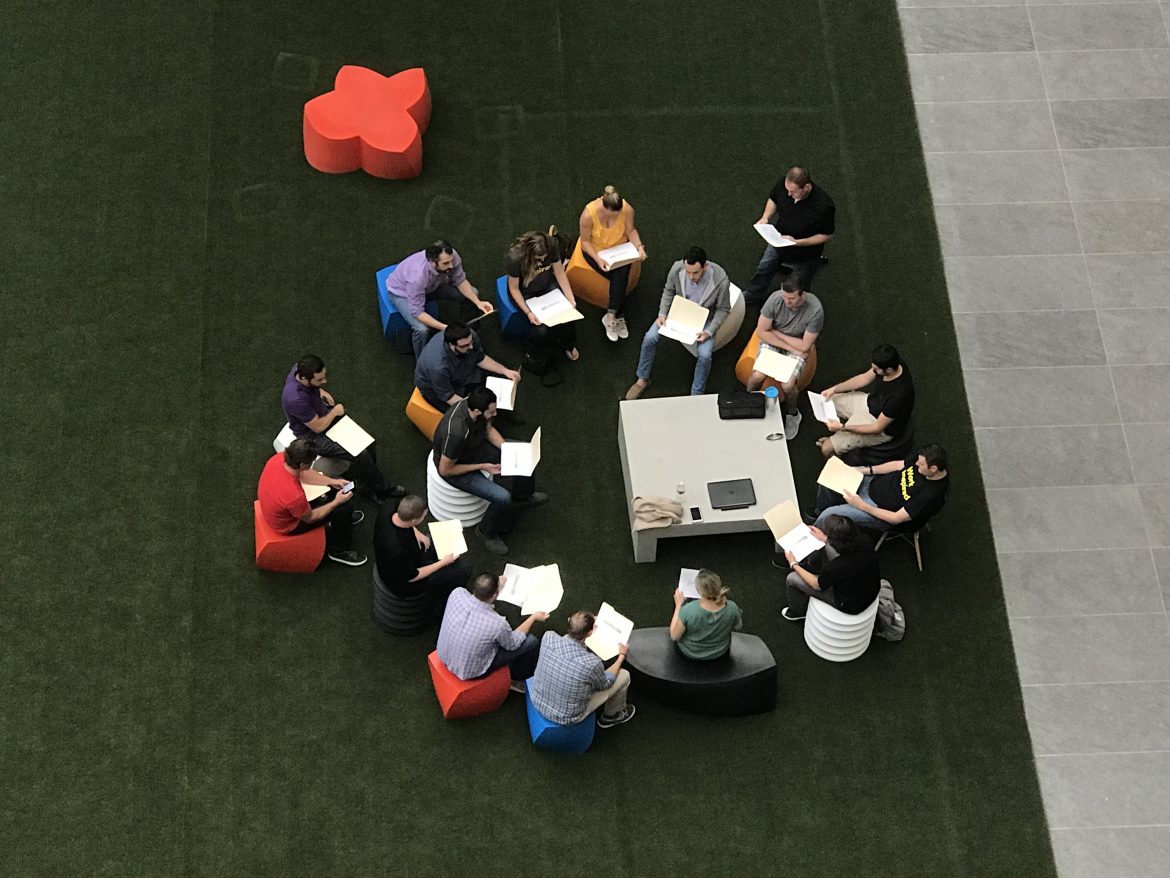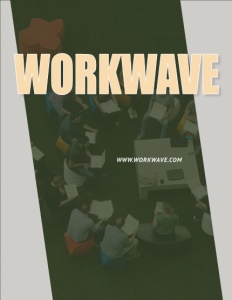Business View Magazine interviews Chris Sullens, CEO of WorkWave, as part of our focus on best practices in the IT sector.
WorkWave is a leading provider of cloud-based software solutions for the field service, last mile delivery, and logistics industries. The company was originally founded in 1984 to provide customized IT solutions for small businesses, specifically pest control companies. Its first major product was called PestPac, which has grown to become an industry leader. “PestPac was originally designed to solve the administrative needs of companies in the pest control industry through unique software programs,” says Chris Sullens, the current CEO of WorkWave, who has been leading the company since 2008.
“Over time, we realized there was a much bigger opportunity. What our clients really wanted was a holistic approach to make their entire back office more efficient, streamline operations, and put everything in one place, so they could connect the dots between customer needs and the services they could provide,” Sullens explains. “So, the business evolved from a very customized software business to an industry-focused business management solution that really solved the back office operational needs of customers in the pest control industry.”
Sullens had come to WorkWave from Service Master, a leader in many different service verticals. “They had brands like Terminix, TruGreen, Merry Maids, and ServiceMaster Clean – so I actually understood the widespread need for operational efficiency across industries,” he shares. “I saw many of the same pain points that all of these field service organizations were going through. So, when I came to WorkWave, I adjusted the strategy going forward.”
“Solving the back office needs of pest control companies was a very important task, but they also had technicians who were in the field, and they didn’t have good visibility in terms of what they were doing and how they were executing from a customer service perspective,” Sullens continues. “Furthermore, they didn’t have good front-end systems to keep track of where their leads were coming from and how they were performing in the sales process.
“So, we focused on creating an integrated, end-to-end platform, both through acquisition and product development that included mission critical functionality in the areas of route optimization, GPS and telematics (the branch of information technology that deals with the long-distance transmission of computerized information), technician and sales-oriented mobile apps, and sales and marketing automation tools. And that is what we’ve been building over the past nine years – broadening the capabilities of our platform to address key pain points in sales, service, marketing, and logistics, tightly integrated to the back office area of the business – so our clients have an end-to-end view of how their business is performing and what adjustments they need to make to improve their results.”
Today, WorkWave has 250+ employees serving over 7,300 unique customers. The company is headquartered in Holmdel, New Jersey in the former Bell Laboratories facility, now called Bell Works. “Bell Works has a rich technology history given the fact Bell Labs invented the transistor, cellular technology, and a number of other ground-breaking technologies here in the ‘60s, 70s, and 80s,” Sullens recounts. “About 200 of our employees work here in Holmdel. We also have offices in Verona, Italy, Honolulu, Hawaii, St. Louis, and Boston, and that’s where the remainder of our staff work. In terms of our customer base, about 94 percent of our customers are in North America, mainly in the United States, and about six percent of our base is international, in 34 different countries.”
In a competitive industry, Sullens says that there are several ways in which WorkWave differentiates itself: “The first way is our focus on verticals. We are a multi-vertical software company as opposed to most software companies that provide horizontal solutions; we tailor the way that we design our solutions, train our people, and market, sell, and service to specifically address the needs of each vertical we serve. Our core field service verticals are pest control, lawn and landscape, cleaning and janitorial, and heating, air, and plumbing. Outside of field service, we serve other businesses that focus on last mile logistics, such as food and beverage delivery, package delivery, and ecommerce businesses. By focusing on specific vertical markets and tailoring our solutions to those industries, we truly differentiate our products in the marketplace.
“The second differentiator is the way we tightly integrate our solutions and deliver them to our clients through a single, intuitive user interface. With the breadth of our platform, there are many strong ‘point solutions’ in each of the different areas that we address, such as routing, GPS, sales automation and marketing automation. By tailoring each ‘point solution’ to our core vertical market needs, and doing the hard work to weave these together on the back end into one workflow, we provide a unified platform for our customers ‘out of the box’ which saves them the time, money, and complexity of doing it themselves. So, our customers don’t need to train their staff on a new user interface; they don’t need to negotiate a new contract if they want to add on some of the more advanced features – all of those can be shared through a single user interface and all that data lives in one system– so they can get better visibility of their operations across their entire business and improve their decision-making. We do allow our clients to use our platform API to integrate third party systems if our ‘out of the box’ solutions don’t meet their needs, but, in general, most choose not to do that because it takes time, adds cost, introduces additional complexity, and inherently doesn’t work as well as the off-the-shelf integrations that we provide. So, providing those integrated, end-to-end solutions is a key differentiator for us in the marketplace.
“The third key differentiator is that we provide enterprise-level technology that is easy enough for small- and medium-sized (SMB) businesses to learn and use. Our business is unique in that we serve a large number of enterprise customers (those with 500 or more technicians or drivers) as well as many small- and mid-sized customers (those with 1 to 500 technicians or drivers). So, our solutions are really designed to be valuable for companies of all sizes. Consumers want to be able to pay their bill online; they want to have technicians who show up on time; they want to have professional looking invoices; and they want to be able to see online, via a portal, for example, on what services have been done or what pictures have been taken, regardless of whether the company serving them is large or small. So, we provide critical functionality that is powerful enough for large businesses but easy enough to use for small- and medium-sized businesses, effectively leveling the playing field in the markets we serve.”
WorkWave recently launched some exciting new solutions. One of those products is called WorkWave Service. “It’s a next generation field service management solution geared toward industries such as cleaning and janitorial, lawn and landscape, and heating, air, and plumbing,” Sullens explains. “It provides the same end-to-end experience that we do for the pest control industry, but with a different user interface and different capabilities in terms of the end markets that the companies serve.”
“The second new product initiative we are excited about is our next generation routing and scheduling platform. We are tightly integrating the telematics platform with our proprietary, algorithmic-based routing engine in a way that will allow our last mile clients to optimize the way that they plan, route, track, and analyze their fleet performance through a single, intuitive user interface. With this product, last mile delivery companies will be able to build plans that organize each stop in the most optimal order so that they can minimize drive time, maximize capacity, deliver efficiency, and track performance against that plan in real-time. No other competitor in either the routing or telematics space has taken this approach, which makes our solution truly unique in the marketplace.”
Going forward Sullens says he expects WorkWave to continue “to execute the strategy that we have in place and enhance functionality across the platform – in the areas of sales and marketing automation, field service management, and fleet management.” Additionally, he has plans to add functionality in some exciting new areas.
“In terms of new capabilities, the first area we are focused on is analytics. We have a massive amount of data in our platform and finding ways to surface that information in an intuitive way will allow our users to make better decisions and improve business performance. In addition, taking the next step and adding the ability to predict performance is an area of focus as well.
“Another exciting area we’re focused on is “IoT” – the Internet of Things; having connected devices in the field, such as connected traps for pest control, which will report the status and activity directly to the technician and the office. We can then use this data to allow our clients to automate dispatch and notification activity, streamline response, and reduce impact on office resources. This will allow our clients to both increase efficiency and improve service levels at the same time.
“The third area of focus is adding the ability to interact with our platform through wearable technology. Service and delivery professionals will be more productive when they work with both hands versus having to reserve one hand to hold a smartphone as they do today. So, finding ways to be able to read bar codes, to be able to access information in a way that you don’t have to be holding or tapping buttons on the device, will be very important for our customers in terms of gathering data and being able to streamline and improve the consistency of the service experience. Wearable technology is fairly immature at this point, but I think over time this will be an important element for field service and last mile logistics providers. So, it’s an area that we are monitoring closely to make sure we will have solutions available when the technology catches up to the industry need.”
AT A GLANCE
WHO: WorkWave
WHAT: A provider of cloud-based software solutions for the field service, last mile delivery, and logistics industries
WHERE: Headquarters in Holmdel, New Jersey
WEBSITE: www.workwave.com
PREFERRED VENDORS

Somerset Development/Bell Works – Based in Lakewood, New Jersey, Somerset Development develops communities and neighborhoods, residential units, and retail and office spaces. Bell Works is the comprehensive revitalization and re-imagination of the former Bell Labs facility in Holmdel, NJ. Designed by architect, Eero Saarinen, Somerset Development is reviving the wonders and capabilities of the architecturally and historically significant two-million-square-foot structure that will provide workers and visitors with a metropolitan backdrop that affords access to an abundance of services and amenities, all in a single, dense and walkable locale. Central to Bellwork’s renaissance is a new pedestrian-friendly public walkway created from the complex’s existing atrium that will connect a balanced mix of uses including offices, supportive retail and dining options, health and wellness uses, a hotel and conference center, educational facilities, an upscale spa, and public facilities. – www.sdnj.com


